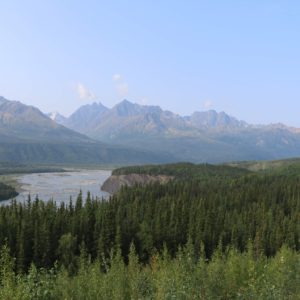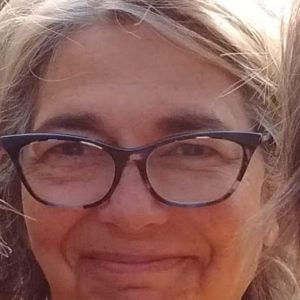
Braiding Sweetgrass – best book of Summer 2019
In the midst of summer and summer chores, I read and listened to Braiding Sweetgrass by Robin Wall Kimmerer and then I listened to it again. I listened primarily when I worked in the garden, which fit well with the spirit of the book. And when I read the book at night, I underlined passages like an over-eager student, because the book meant that much to me. I wanted to be able to conjure up lines like an incantation and do so at will. Instead I ended up boring Andy by dully summarizing chapters. (My lesson: one person’s revelation can be another person’s long drab documentary).
Robin Kimmerer is a botanist and professor of plant ecology; she is proficient in and respects the ways of scientific analysis and research. Kimmerer is also a member of the Potawatomi nation and as a young girl she learned from tribal elders and her family about the natural world.
Braiding Sweetgrass is part memoir, part modern ecology discourse, and an anthropology lesson on Potawatomi culture. Wrap it all together and the material becomes a well-structured argument that asserts the best way to restore the natural world is to adopt indigenous perspectives and practices. The book opens by sharing the Potawatomi creation story and Kimmerer finishes it on a point she references throughout: the Potawatomi, as well as most cultures indigenous to this land, consider plants and animals be our oldest teachers.
Kimmerer intertwines her scientific and indigenous knowledge to make the book’s central argument which asserts that to improve our ecological consciousness, humans must first understand and then honor our reciprocal relationship with the world. Kimmerer wants us to understand that when we frame natural resources as ‘gifts’ from the earth, as native cultures do, then the way we interact with the earth fundamentally changes.
This is a big book, dense with life stories, science, native cultures, and plant ecology. It’s hard for me not to go on and on, so I’ll reign it in and cover just a couple of my very favorite parts.
In her role as professor Kimmerer sets the tone of her class by starting with this question, “Many of us love the natural world. What would it mean if you knew the world loved you back?”
Students often push back on the question and argue that it veers into anthropomorphism and away from scientific objectivity. Kimmerer gently rephrases, “Okay, then hypothetically speaking, what would change if you knew the world loved you back?”
The answer is this: “Everything would change!” And then chapter after chapter Kimmerer shares stories that reveal the manner in which the world does love us back.
Kimmerer describes her effort to learn the Potawatomi language in the book. Potawatomi is difficult to learn, and at the time Kimmerer took the language class there were only nine living speakers, and the youngest was 75. Kimmerer knew the language would be very difficult to learn when she found 70% of Potawatomi words are verbs and must be conjugated – in English that percentage is just 30%.
In Potawatomi nouns and verbs are either animate or inanimate. The animate world in Potawatomi includes almost everything in nature and generally only things made by humans are given an inanimate status. This means that most of the world is given a “to-be” status, example: to be a bay, to be a long sandy beach, to be a tree. In Potawatomi and most other indigenous languages, the same words to address the living world are the same used to address family, because the natural world is family.
Kimmerer recounts times when she heard elders give advice like, “You should go be among the Standing people” or “Go spend some time with those Beaver people”. She writes that traditional knowledge provides guidance on accepting the capacity of others to be teachers and guides (“others” being plants, animals, rivers). And she imagines if we spoke her native language how our perspectives and interaction with the world would change.
You can read this gobsmacking wonderful book in chunks; it does not need to be read from front to back. And if you take time with it, I will assure you, you will think differently of the world around you.

